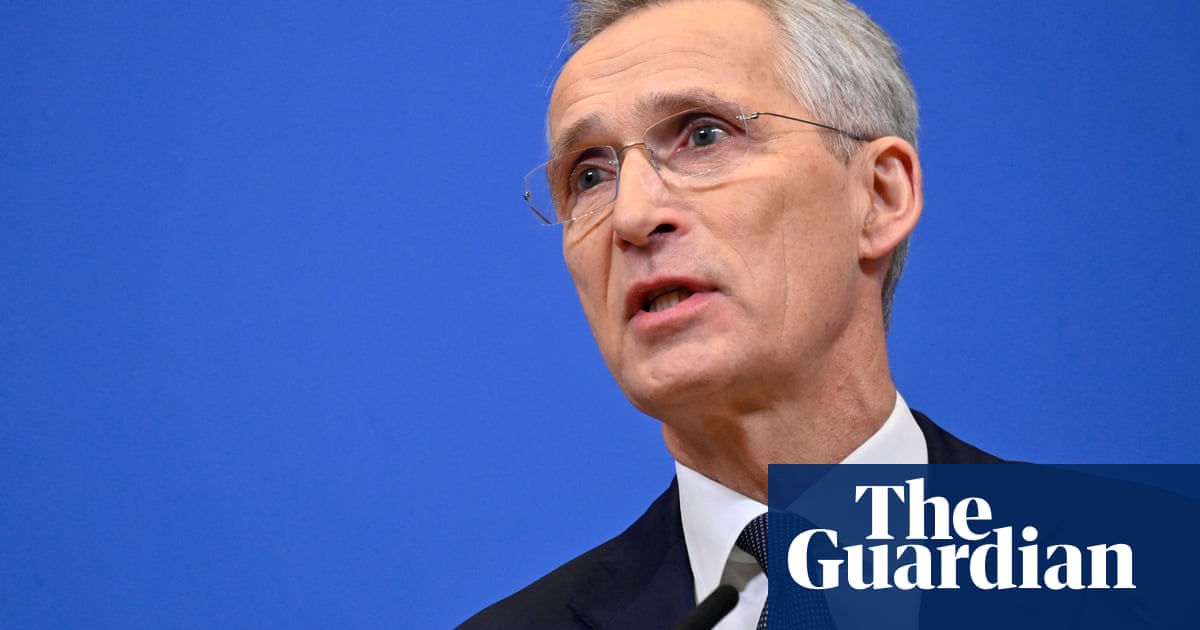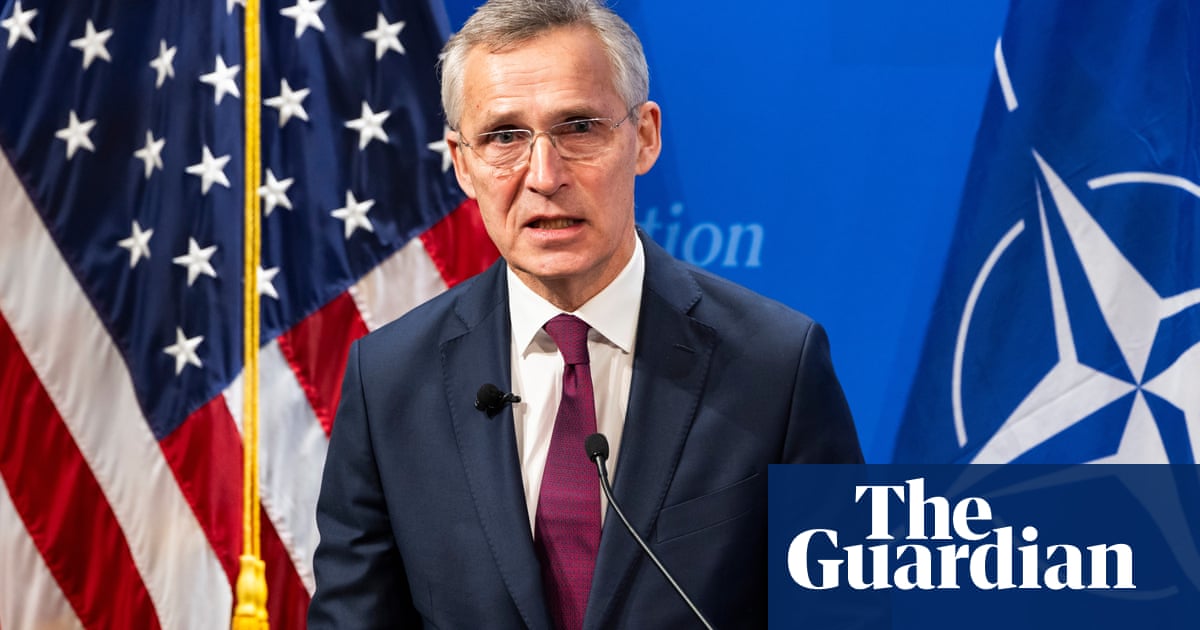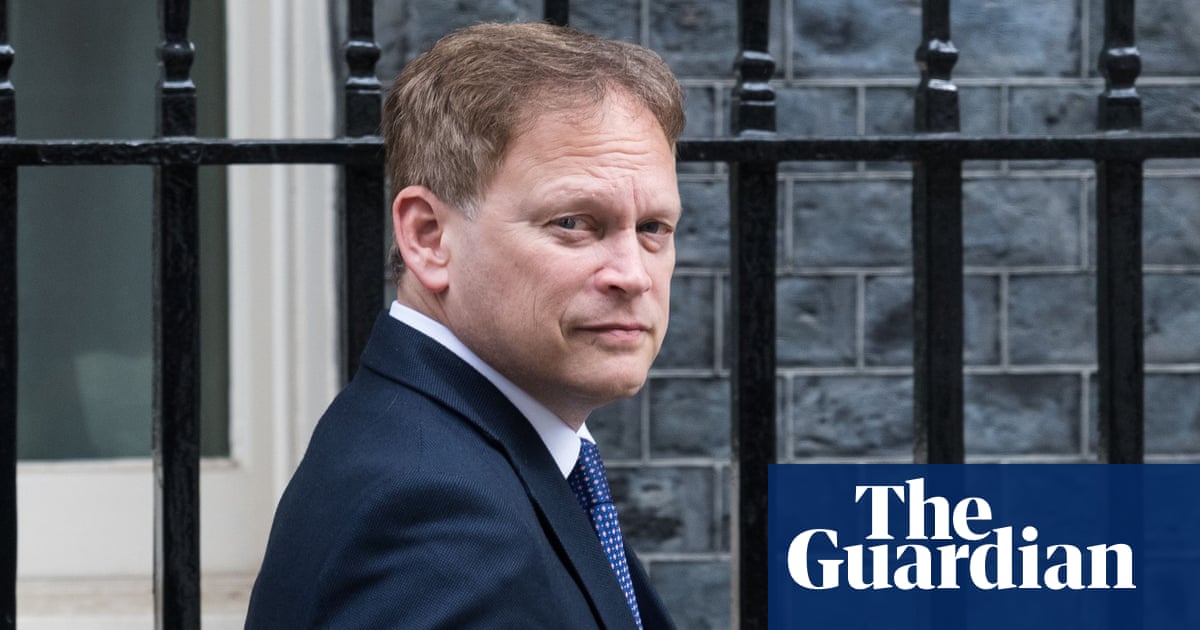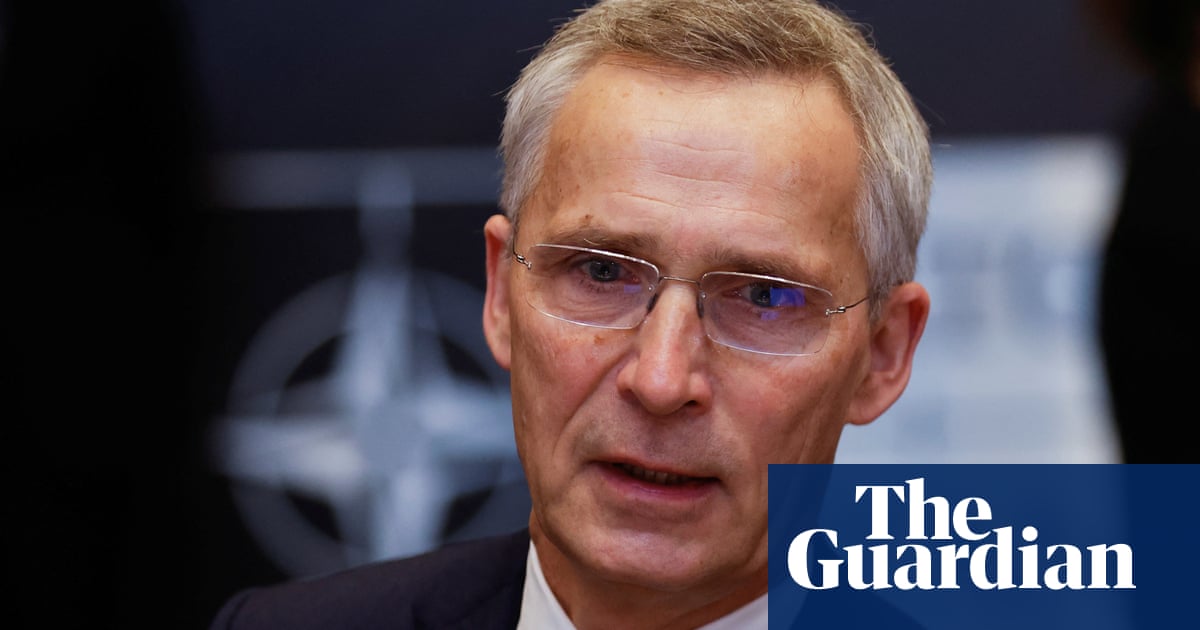
Jens Stoltenberg, Nato’s secretary general, has accused Donald Trump of undermining the basis of the transatlantic alliance as he announced that 18 Nato members were expected to beat the target of spending more than 2% of GDP on defence.
It was the second rebuke by the Nato chief to the Republican frontrunner in less than a week, reinforced by a declaration that Germany was among the countries planning to spend over the threshold for the first time in a generation.
“We should not undermine the credibility of Nato’s deterrence,” Stoltenberg said on Wednesday as he responded to comments made by Trump at a campaign rally at the weekend. “Deterrence is in the mind of our adversaries,” he added.
On Saturday, Trump caused outrage in Europe when he said he would “not protect” any Nato member that had failed to meet the 2% target – and added that he would even encourage Russia to continue attacking them.
A day later, Stoltenberg said Trump’s rhetoric “puts American and European soldiers at increased risk”, while on Wednesday, before a meeting of defence ministers, the normally diplomatic secretary general returned to the theme, arguing: “We should leave no room for miscalculation or misunderstanding in Moscow.”
German officials added that Berlin would allocate more than 2% of GDP to defence during 2024, and the news agency DPA later said that would amount to €68.58bn (£58.6bn), or 2.01% of GDP. It will be the first time military spending has exceeded the threshold since the end of the cold war. A year ago the proportion was 1.57%.
Germany has long been one of Nato’s lowest military spenders, reflecting a long-held caution in the light of its role in the second world war – and as a result has become an implicit target of complaints from Trump and other American leaders, who have argued that Washington takes on much of the financial burden of protecting Europe.
But Berlin’s attitude has dramatically changed since Russia’s invasion of Ukraine, described by the chancellor, Olaf Scholz, as a time-turning moment. If sustained it could lead to Germany overtaking Britain and France, traditionally Europe’s largest military spenders.
Boris Pistorius, Germany’s defence minister, said Berlin’s new approach on defence spending had nothing to do with Trump and was based on its own assessment. “I think we would do very well not to keep looking like rabbits at a snake at the possible Republican presidential candidate,” he said. “Instead we should do our homework.”
Across the 31-country alliance, Stoltenberg said he expected “18 allies to spend 2% of their GDP on defence”, which he said was a dramatic change. “That is another record number. And a sixfold increase from 2014, when only three allies met the target.”
The secretary general did not list the countries who were expected to have hit or exceeded the 2% level, although the list is likely to be headed by Poland, which in 2023 spent 3.9% of its GDP on defence. Britain has spent above the threshold for many years, but France has been slightly under and it is not clear if it has increased its budgets.
Budgetary decisions are taken over a period of months, meaning the Nato chief’s spending declaration cannot be considered a direct response to Trump’s comments. Instead it reflects a response to increased Russian aggression and the need to support Ukraine with armaments in a war widely expected to last into 2025.
Separately, western defence ministers held a hybrid virtual and in-person meeting of the Ukraine contact group on Wednesday to discuss fresh donations of equipment to Kyiv. It had been intended to be an entirely in-person event, but switched to the dual format when health problems prevented Lloyd Austin, the US defence secretary, from travelling.
Austin was hospitalised for 48 hours from Sunday because of a bladder issue, at a time when the US is unable to send any more military aid to Ukraine because the House has not signed off on a $61bn (£48.6bn) package. Republicans loyal to Trump are blocking the package from being put to a vote and it is unclear if it will pass.
“We will continue to dig deep to provide Ukraine with both near-term and long-term support,” Austin said at the beginning of the meeting, without directly referencing the situation in Congress. But without US financial support, there are concerns that Ukraine will increasingly be thrown on to the defensive, even if Europe spends more.
Nato allies in Europe would invest a combined total of $380bn in defence, Stoltenberg said, and this would “for the first time” amount to 2% of their combined GDP. A decade earlier, the spending figure was $235bn, amounting to 1.47% of GDP.
However, Stoltenberg warned against Europe going it alone on defence. “The European Union cannot defend Europe. Eighty per cent of Nato’s defence expenditures come from non-EU Nato allies,” he said. Some European politicians have pushed for a greater role for the EU in defence, traditionally Nato’s domain.












